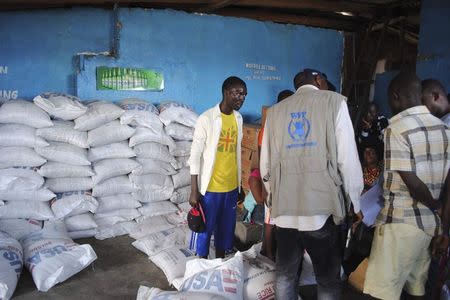AU asks African leaders to send doctors to Ebola-stricken states

ADDIS ABABA (Reuters) - The African Union has appealed to all leaders in the continent to contribute health workers and specialists to staff new Ebola clinics and hospitals being built in West Africa, its chairperson said on Thursday. Global health authorities are struggling to contain the world's worst Ebola epidemic since the haemorrhagic disease was identified in 1976. The virus - still spreading in West Africa - has killed nearly 4,500 people, with confirmed, probable and suspected cases reported in seven countries, including the United States. Though hundreds of millions of dollars have been committed and new Ebola clinics and hospitals are being built, aid agencies say there too few volunteers. The Addis Ababa-based bloc has already deployed around 100 volunteers in Liberia, where -- as in Sierra Leone and Guinea -- healthcare systems are collapsing. "We have written to our members' heads of state to see if each country can give us maybe up to 10 or 20 each," Nkosazana Dlamini-Zuma, Chairperson of the African Union Commission, told reporters. "Even if some give us one or others give us 20, if everyone gave, we can get some hundreds of health workers," she added. The United States already has more than 350 troops on the ground in West Africa, part of a planned mission of up to 4,000. They have set up headquarters in Liberia's capital, Monrovia, and hope to have a 25-bed field hospital ready this month. The U.S. military also aims to quickly build up to 17 Ebola treatment units. Britain is setting up a 200-bed hospital in Sierra Leone and the United Nations has formed a special mission to lead efforts. But aid agencies say hospitals for Ebola infections, which the World Health Organisation says are doubling every 10 to 21 days, may not be built and staffed fast enough to meet demand. "It is not just a fight for these three countries," Zuma said. "If we don't help them the disease will also come to everyone ... each member state cannot say it is immune." (Reporting by Aaron Maasho; Editing by Drazen Jorgic/Ruth Pitchford)

